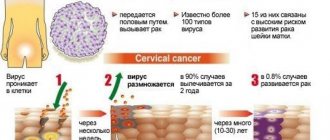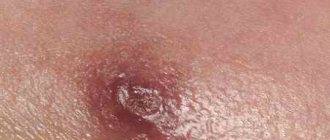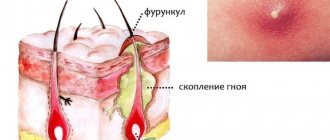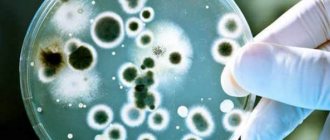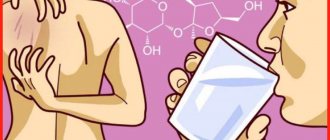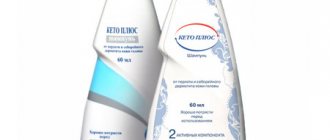Psoriasis: what is this disease?
One of the forms of lichen on the skin, which is characterized by excessive growth of dermal cells, accompanied by inflammation and damage to organs and systems.
The disease is non-infectious and can affect hair and nails; exacerbations often alternate with the attenuation of symptoms under the influence of certain factors. The pathology brings cosmetic inconvenience to the sick person, especially in the hot season.
Signs of psoriasis infection
The disease progresses completely differently in each individual person, but general patterns can be identified. First, areas of slightly dry skin begin to appear on a person’s skin. These areas begin to peel off and visually begin to rise slightly compared to unaffected areas of the skin.
The person experiences itching, and red plaques appear on the affected areas of the skin. As a rule, the affected areas are localized on parts of the body where a peculiar bend occurs (elbows, shoulders or knees), and areas with hair (head) can also be affected. Psoriasis often occurs on the back.
Types and forms of psoriasis
There are several types of the disease:
- Ordinary type, or plaque form. One of the common types of psoriasis, which is characterized by the appearance of silvery or pink plaques on a person’s skin. The rashes tend to merge.
- Pustular type. Medical names: impetigo, Zumbusch disease. One of the severe forms of the disease. The formations look like blisters or bubbles filled with liquid. This type is prone to infection and purulent course, localized on the upper and lower extremities.
- Dermatoid form. Pustular rashes in psoriasis are non-infectious (the disease is not contagious), but due to spread to the fingers, it damages the nails.
- Pustular bacterid. Localized on the feet and palms. Formations of different sizes are prone to growth. A severe form of the disease that prevents a person from walking and working, since with constant exposure the pustules open and become inflamed.
- Guttate psoriasis. The main symptom is red or burgundy spots that are distributed throughout the body. More often occurs after a sore throat.
- Arthropathic form. The disease affects the joint capsule and connective tissue. Small joints often suffer, but sometimes the inflammatory process tends to spread to the hip joint, vertebrae, and knees. Without therapy, it leads to disability.
- Other types. Psoriasis manifests itself as spots that are located in the folds (groin, elbows, under the mammary gland). The formations often become inflamed due to friction and can cause fungal infections.
Stages of psoriasis
Pathology develops in stages. There are 3 stages of psoriasis:
- progressive. At this stage, the first signs of the disease appear (papules, rash, burning, itching);
- The stationary stage is characterized by the appearance of red-pink plaques that flake and itch constantly. As a rule, it is at this stage that the disease is treated;
- regression stage. The affected areas gradually become smaller, the itching and burning subsides, the plaques become lighter in color and dissolve over time.
Risk factors and causes
Before you find out whether skin psoriasis is contagious, you should determine the causes of the development of the pathological process.
Genetic
The disease is not contagious, but there is one way of transmitting psoriasis - by inheritance. If one of the parents is sick in the family, then the risk of detecting the disease is up to 20%.
Neurogenic
Stress and constant disruptions can reduce the body's defenses, and this is reflected in rashes of various forms. Sedatives help correct the problem: psoriatic rashes fade and disappear after the person’s mental state improves.
Infectious
Are psoriasis symptoms contagious to others? No, but if the etiology of the disease is associated with complications after infectious diseases, then residual effects from the infection can be transmitted to a healthy person.
Often, rashes begin to appear after a fungal or viral infection, pharyngitis.
Allergenic
Polynoses and other types of hypersensitivity of the body cause the spread of spots and plaques. Infection with psoriasis (as well as allergies) is impossible for other people.
Genetic causes of psoriasis
The only mechanism by which one can “get” this disease is heredity. So, according to statistics, if one of the parents has psoriatic manifestations, then the probability of their occurrence in the child is 40-50%. In the case where both mother and father became “victims” of the pathology – 75%.
Scientists have found that patients with psoriasis experience abnormal changes in the structures of epidermal cells, which are transmitted genetically.
These transformations cause a metabolic failure in the body of the “heir” and cause the appearance of hated psoriatic plaques on the skin.
It happens that a person does not realize that he is sick for many years. Psoriasis can “declare” itself at any time - plaques are found in infants and adolescents, as well as in middle-aged and elderly people.
Clinical cases have been recorded in which parents learned about their illness only after its symptoms “erupted” in their child. This once again proves the genetic nature of psoriasis.
How is psoriasis transmitted?
Is psoriasis transmitted from person to person? Let's look at the answers below.
Is it contagious through household and physical contact?
The statement that psoriasis is transmitted through contact in everyday life is erroneous: the disease is not contracted by using the patient’s things, by hugging, touching or kissing him. Caring for a patient suffering from this disease is safe and does not require taking medications for special prevention.
Sexual infection
There is a popular belief that psoriasis is sexually transmitted. This is not true: you cannot get psoriasis from intimate relationships. The pathology is associated with psychological discomfort and causes a feeling of embarrassment when in contact with a partner.
Genetic predisposition
How is psoriasis inherited? Even in cases where both parents have the disease, the risk that the child will develop a pathological process is less than 50%. Many different reasons are involved in the development of the disease, and hereditary transmission is not the only one.
Truths and myths about psoriasis
Komsomolskaya Pravda conducted a survey and found out what readers know about psoriasis.
Society's attitude towards people with skin diseases is becoming more equal, this was revealed during the survey. The vast majority of participants, when communicating with a person with external manifestations of psoriasis, empathize with him, and many do not pay attention at all. Less than 15% of respondents experienced a feeling of disgust and inconvenience.
The population is quite aware of the disease: the majority of respondents have not only heard about the disease “psoriasis”, but also understand in general terms what it is.
People usually involuntarily avoid those who suffer from skin diseases. Psoriasis has long been considered a “shameful” disease and many believed that it was contagious. Many myths about the disease are still widespread.
Psoriasis is contagious
The myth about the infectious nature of psoriasis is less common than before. Survey results show that more than 85% believe that psoriasis is not contagious. At the same time, about 7% of respondents think that it is the patient’s skin and belongings that pose a danger.
To a large extent, the prejudiced attitude towards patients is explained by the fear of becoming infected. In fact, psoriasis is absolutely not contagious, since it is not an infection. It occurs due to disturbances in the functioning of the immune system, which cause active division of skin cells. The lifespan of cells is shortened from 28 days to 3. Due to accelerated apoptosis - cell death, and active division, an excess is formed, and the keratin layer of the skin does not have time to peel off. Thus, plaques typical of psoriasis are formed.
Psoriasis occurs due to stress
Stress can trigger the first manifestation of the disease or cause a new outbreak if the diagnosis was established earlier.
But stress alone is not enough to cause psoriasis. If psoriasis manifests itself for the first time after a stressful situation, this means that the person was already sick. There are many causes of psoriasis; it is a whole complex – from heredity to external factors.
Psoriasis is caused by poor hygiene and bad habits.
There is a widespread myth that psoriasis affects only those who neglect hygiene and have bad habits: smoking, drinking.
The disease has many causes, and alcohol and smoking only provoke an existing disease. Insufficient skin care leads to the fact that the symptoms of psoriasis become more pronounced. Hygiene with psoriasis must be especially careful, but the disease does not occur due to insufficient self-care. Moreover, excessive hygiene, active steaming and harsh products worsen the condition of the skin.
Psoriasis is inherited
Most respondents noted that only a predisposition to the disease is inherited. Ultimately, other factors provoke the disease. Psoriasis does not necessarily manifest itself, even if the diagnosis is established in relatives.
At the same time, there is no connection with the gender of the sick relative - the hereditary factor is equally transmitted both on the maternal and paternal lines.
Psoriasis is more common in women than men
About half of the survey participants believe that a certain gender is more predisposed to psoriasis: either women or men.
Higher amounts of the hormone estrogen in women can be a trigger for autoimmune diseases. This makes women more vulnerable to psoriasis, but statistically the number of cases in both sexes is approximately the same.
Children do not get psoriasis
Most often, the disease manifests itself in adolescence and adulthood. But in some cases, psoriasis is detected in children and even newborns. Often the disease is triggered by stress or infection. In 75% of cases of childhood psoriasis, the first signs appear before the age of 5 years.
Psoriasis is incurable
Psoriasis is a chronic disease and a complete cure is truly impossible. The majority of survey participants voted for this option.
At the same time, people with psoriasis sometimes refuse to undergo treatment and do not go to doctors for a long time, because they believe that it is impossible to influence the chronic disease. During periods of exacerbation, patients self-medicate, as they do not see the point in visiting a specialist again.
There is an effective biological therapy that completely eliminates the manifestations of psoriasis on the skin and nails, and long-term remission is achieved. It is important that the patient is aware that psoriasis can be treated and undergoes treatment. For example, in St. Petersburg in 2020, 12 thousand patients with psoriasis were registered, and only 7 thousand were under dispensary observation. Almost half of the patients did not receive professional medical care.
Psoriasis is a rare disease
The survey revealed that more than half of the respondents believe that 10-15% of the population suffers from psoriasis.
Official figures are more modest, 2 - 4%. In Russia, the percentage of cases varies in different regions from 0.72 to 11.8%. But in fact, many sick people do not go to the doctor and do not register, mistaking the rare appearance of spots on the skin for an allergy or eczema. Psoriasis does not always progress quickly and may go unnoticed for a long time.
It is difficult to estimate how many people suffer from psoriasis. The disease is relatively rare, but common. About 10 out of 100 people have a genetic predisposition to psoriasis - but not all of them will develop the disease.
You can find out more about psoriasis on the website psoriaz.life.
The first symptoms of psoriasis
Before treating pathological formations, it is important to carry out differential diagnosis in order to distinguish one disease from another.
The initial signs of psoriasis appear as red spots over the entire surface of the skin. They are small in size, but prone to rapid growth and merging. The top layer above the formations becomes covered with scales and begins to peel off.
The pathological process begins in the arms, lower extremities, and in the folds of the skin.
Differences from other diseases:
Stearic stains (flakes are easy to scrape off). After the skin particles peel off, the surface of the spot becomes shiny and inflamed. When the film is damaged, blood droplets appear that resemble dew.
Is it possible to cure psoriasis?
Psoriasis is a chronic disease . Unfortunately, modern medicine does not know any ways to permanently get rid of this disease. But with the help of complex therapy, it is possible to achieve a reduction in the affected area and long-term remission.
Modern, proven treatment methods include ichthyotherapy, hirudotherapy, tar-mud baths, and phototherapy. New drugs that have good antipsoriatic effects are being developed and introduced (Cignolin, Psorax, Psorkutan, Elokom and others).
Psoriasis in the initial stages stops quite quickly, and if preventive measures are taken, new rashes may never appear. If old formations make themselves felt, it will only be as a signal of weakening immunity. In this case, take immediate action.
Why is psoriasis dangerous?
Psoriasis is a serious illness that requires urgent treatment, as it can affect a person’s internal organs.
If treatment is not timely or if the doctor’s instructions are not followed, the following consequences arise:
- lesions and detachment of nails;
- joint pathologies, arthritis;
- eye diseases – conjunctivitis, sclerosis;
- with the development of plaques in the mucous membrane of the urinary tract, cystitis may occur;
- kidney and liver damage;
- muscle atrophy;
- swollen lymph nodes;
- polyneuritis, encephalopathy.
Psoriasis can affect not only the skin, but also all human organs and lead to disruption in their functioning. If the disease is not treated in the prescribed ways, it poses a threat to life.
Is skin psoriasis contagious and what are the complications?
Can you get psoriasis? This question worries both the patients themselves and the people around them. No wonder. Few people want to become infected with such a disease. It is safe to say that the pathology is immune in nature and cannot be transmitted to healthy people through everyday contact.
Despite the safety of the pathology for the people around them, for the patients themselves the disease poses a threat of developing the following complications:
- Psoriatic arthritis is a severe form of the disease when it is not the person’s skin that is affected, but his joints and ligaments. Most often, pathology occurs against the background of existing plaques and is a consequence of improper treatment of other forms of the disease.
- Damage to the eyes and mucous membranes - psoriasis often affects not only the dermis, but also the mucous membranes of the nasopharynx. Complications here include frequent conjunctivitis, inflammation of the eyes, and severe disruption of the metabolic processes of the mucous membrane.
- Impaired liver function - this complication is a consequence of intoxication of the body with decay products. In addition, taking medications that the patient uses to treat the pathology has a negative effect on the liver.
- In complicated forms of the disease, the heart, kidneys and other internal organs succumb to destructive processes.
When faced with the disease, you should not think about whether psoriasis is contagious, but immediately seek medical help. Timely diagnosis and proper treatment will help avoid many complications.
Causes of psoriasis, scientific basis
At the moment, science does not know the exact causes of psoriasis, so how it occurs, what factors contribute to the development of the disease and how one can get psoriasis can only be judged on the basis of existing scientific theories.
Genetic
According to this theory, the tendency to manifest pathology is inherited by descendants, therefore, to the question of whether skin psoriasis is contagious to others, genetic teaching gives an accurate answer. This answer is negative. The theory completely refutes the infectious nature of the pathology and confirms the likelihood of the disease manifesting itself in those patients whose relatives are susceptible to the disease.
Viral
This teaching is the only one that states that psoriasis is a contagious disease that can be contracted from another person. According to the viral theory, people suffering from pathology are carriers of a specific viral infection that provokes the onset of the disease.
However, the fact that the disease is not transmitted through contact does not support this theory, but rather refutes it and proves the dubious nature of the doctrine.
Neurogenic
According to this theory, the cause of the disease may be the patient’s increased nervousness and exposure to stress. In accordance with the teaching, the mechanism of manifestation of the disease is as follows:
- neuroses provoke a narrowing of blood vessels;
- blood supply to the skin deteriorates;
- Papular formations appear on the skin.
Immune
Is it possible to become infected with psoriasis, according to the immune theory? No, in accordance with this teaching, it cannot be transmitted by contact or by inheritance, since the cause of the pathology is the weakened immunity of the patient. It is for this reason that psoriasis is classified as an autoimmune disease. This theory has the largest number of adherents among doctors, which indicates its plausibility and validity.
In addition, the immune theory is supported by the fact that during periods of infectious diseases, when the patient’s body is weakened, psoriasis worsens.
